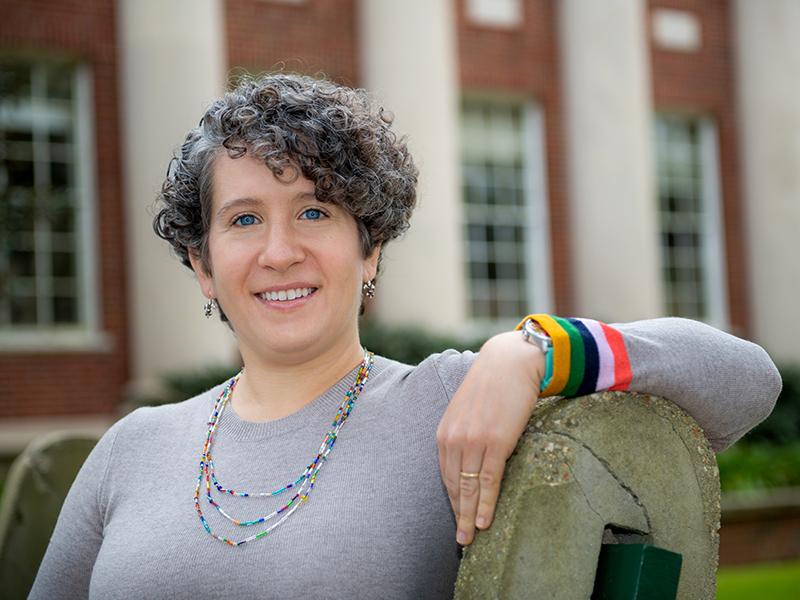Connecting the past, present, self and community through the humanities and service learning
Mallory Monaco Caterine views the study of ancient Mediterranean civilizations and languages as not only an opportunity to gain knowledge of history, but also as a guide to understanding human behavior that assists in informing our decisions today.
Monaco Caterine, senior professor of practice in the Department of Classical Studies at the School of Liberal Arts and Greenberg Family Professor of Social Entrepreneurship at the Phyllis M. Taylor Center for Social Innovation and Design Thinking, wrote her doctoral dissertation at Princeton on the Greek biographer Plutarch, who wrote moral biographies about Greek and Roman statesmen. Her studies influenced her path forward and led to award-winning community engagement through the service-learning courses she now teaches at Tulane.
Late last year, Monaco Caterine received the Society for Classical Studies (SCS) 2021 Outreach Prize for her work with the Nyansa Classical Community in New Orleans. She was nominated for this award by Dennis Kehoe, professor in the Department of Classical Studies, and said she felt honored to be recognized by not only the SCS but by a colleague who has also done so much outreach and service work at Tulane.
“I was really surprised when I got the notification. It's very validating because service-learning teaching can be very hard; you are constantly running into roadblocks or needing to find better ways to work with your community partners. It’s also important to have students feel connected to the work and to make their work connect to what you're doing in the course. So, getting the Outreach Prize has really motivated me to keep going with that work,” Monaco Caterine said.
The Nyansa Classical Community is a nonprofit organization that provides enrichment education programs for young students, ages 5 to 12, incorporating not only biblical, but also Greek and Roman literature into its curriculum. Her students (who know her as “Professor MC”) worked with Monaco Caterine to design new Latin- and Roman-based materials, considering not just the needs of the users but also their aspirations. The course content, based on Roman fables, was a literacy builder and also acted as a discussion starter, stimulating the Nyansa students to think about the stories and relate them to their own lives.
“How we use the past to make better decisions in the present and the future has always fascinated me. So, it really grew from there. A lot of it is getting students to recognize different forms of leadership, that it's not just necessarily the person who has a title who is exercising leadership. There's a lot of turn taking, and a lot of collaboration and a lot of listening. That is what happens when you see good leadership,” said Monaco Caterine.
As a result of the collaboration, Nyansa is now engaged in building out the curriculum and providing their materials for free or at low-cost to other groups who are interested in a more diverse and inclusive classical Christian education.
Monaco Caterine’s outreach work with Nyansa, and her prior work with two public schools, Lafayette Academy and Crocker College Prep, inspired another venture, the formation of the nonprofit Kallion Leadership, of which she is co-founder and co-executive director. Kallion is a humanities organization whose mission is “to design and develop communities around the study of the Humanities, in order to unlock the human talent for creative, benevolent, and lasting improvements to our common condition.”
Kallion grew out of the belief that humanities education can be an effective means of leadership development. Speaking about Kallion’s mission, Monaco Caterine said, “We think a lot about how to make the humanities and leadership accessible to as many people as possible. Very broadly defined, all time periods, all cultures, any sort of humanities artifacts, whether that's texts, visual arts, music, performance, philosophy, anything that people have produced to express their experiences and their inner lives, we believe can be used to help each of us to exhibit better leadership skills.”

